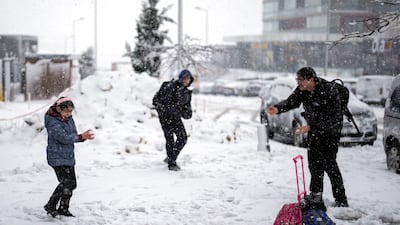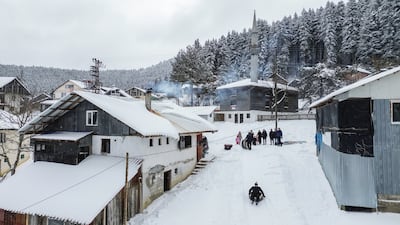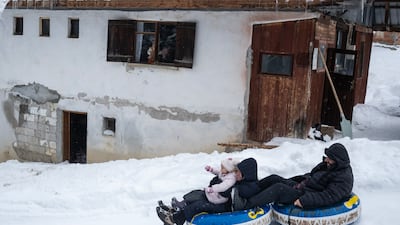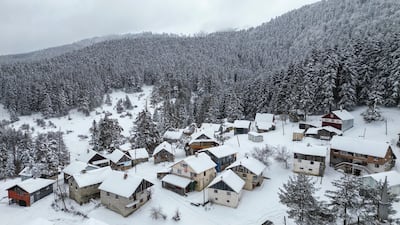Heavy snow has blanketed Istanbul for the first time in years as an Arctic storm hit the region, with temperatures plunging across Turkey, Lebanon, Jordan and Syria.
The snow was forecast to reach depths of up to 40 centimetres in some areas of the Turkish city and has played havoc with transport. Cars and buses became stuck on icy roads as traffic ground to a near standstill, while authorities closed schools on Friday.
Istanbul and Sabiha Gokcen airports announced flight cancellations as snow removal teams worked to clear runways.
Temperatures were expected to drop below freezing in Istanbul on Friday night, with authorities warning of black ice and potential power cuts. The cold weather is being caused by an air mass from Siberia that reached the city early on Wednesday. It followed a week of intermittent sleet and hail in Istanbul.
Some made the most of the inclement weather, descending on parks for snowball fights, while a group of hardened swimmers took to the Bosphorus Strait for a dip in the icy waters.
Istanbul mayor Ekrem Imamoglu warned residents in the metropolis of 16 million that the treacherous conditions would continue into Saturday, advising against travelling by car unless necessary. Governor Davut Gul said women government employees who are pregnant or have children under the age of eight could take Friday off.
Turkey’s meteorological service issued warnings for heavy snow along the Black Sea coast all the way from Istanbul to the Georgian border, as well as avalanche risk warnings for the eastern border area with Iran, Iraq and Armenia.
Weather apps reported temperatures as low as minus 11°C in the eastern province of Erzurum, home to a popular ski resort, and said the mercury could drop to minus 21°C in the coming days.

As far south as Lebanon, snow was forecast on ground 400 metres above sea level in northern parts of the country.
"Lebanon and the eastern Mediterranean basin are affected by an Arctic atmospheric depression ... leading to a marked decrease in temperatures," Lebanon's Department of Meteorology said. Temperatures were well below the seasonal averages, it added, with lows of 4°C forecast in Beirut on Saturday.
In Jordan, snow showers were expected to fall on mountain peaks. Temperatures in the capital Amman dropped as low as 2°C. Authorities declared a state of emergency for valleys and reservoirs in anticipation of flash floods and rising water levels, Jordanian media reported.
Raed Al Khattab, director of the Jordan Meteorological Department, said the chilly period was being driven by a cold air mass from the Arctic. Snowfall was expected to begin on Saturday at higher elevations, he said.
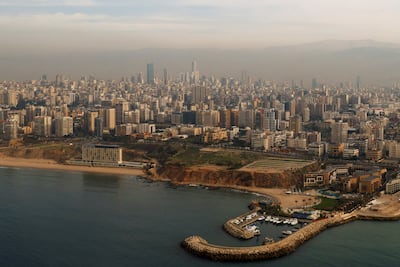
In Syria, state media reported that temperatures were expected to be at least 10°C lower than the seasonal average, with the mercury forecast to approach 0°C next week.
“The polar mass will be accompanied by snowfall next Saturday morning in the western countryside of Damascus,” news agency Sana quoted experts in the Syrian Civil Defence as saying.
The cold was forecast to persist until the end of the month, Sana added.



